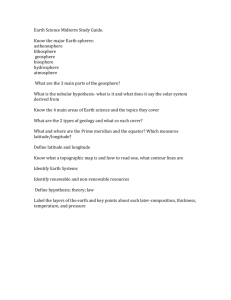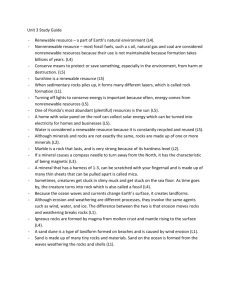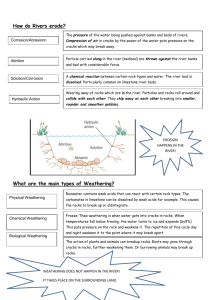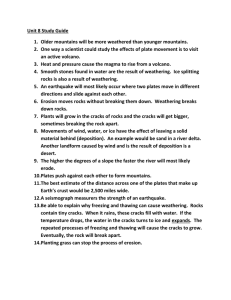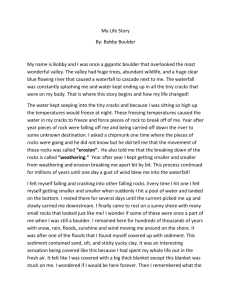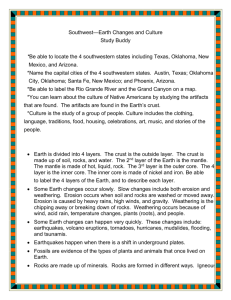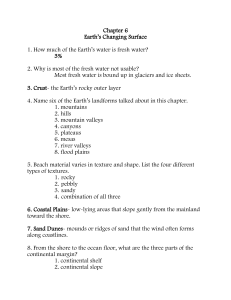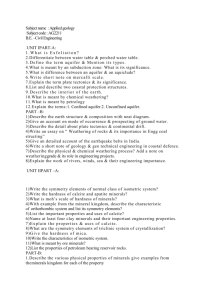Shaping the Earth - 5D-Country
advertisement
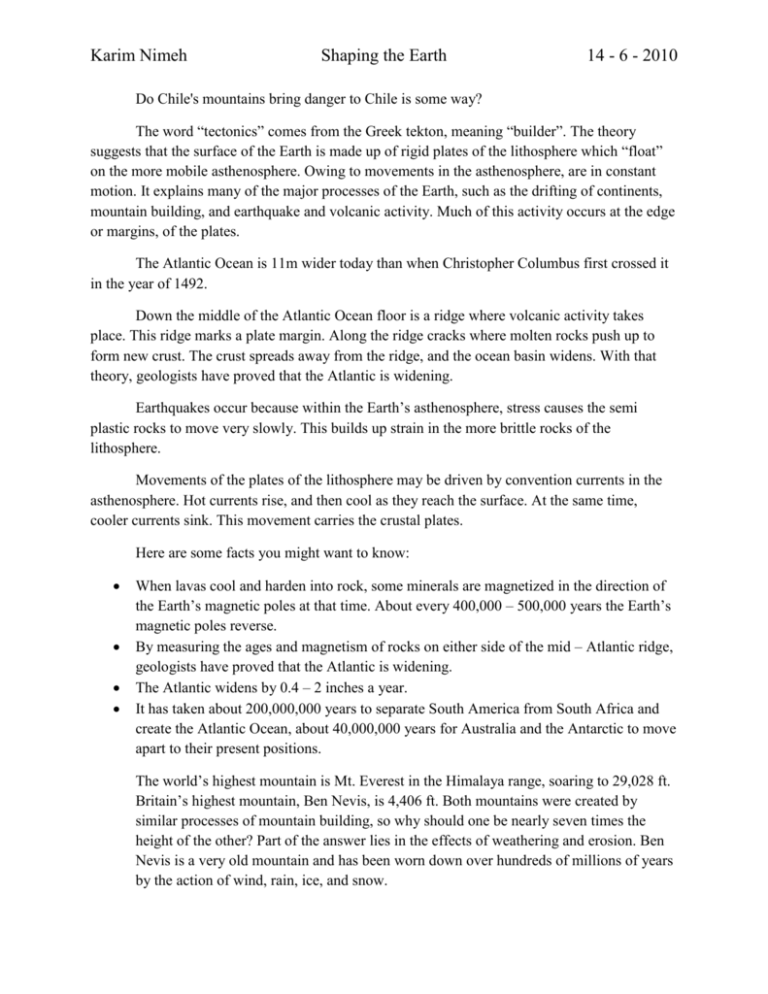
Karim Nimeh Shaping the Earth 14 - 6 - 2010 Do Chile's mountains bring danger to Chile is some way? The word “tectonics” comes from the Greek tekton, meaning “builder”. The theory suggests that the surface of the Earth is made up of rigid plates of the lithosphere which “float” on the more mobile asthenosphere. Owing to movements in the asthenosphere, are in constant motion. It explains many of the major processes of the Earth, such as the drifting of continents, mountain building, and earthquake and volcanic activity. Much of this activity occurs at the edge or margins, of the plates. The Atlantic Ocean is 11m wider today than when Christopher Columbus first crossed it in the year of 1492. Down the middle of the Atlantic Ocean floor is a ridge where volcanic activity takes place. This ridge marks a plate margin. Along the ridge cracks where molten rocks push up to form new crust. The crust spreads away from the ridge, and the ocean basin widens. With that theory, geologists have proved that the Atlantic is widening. Earthquakes occur because within the Earth’s asthenosphere, stress causes the semi plastic rocks to move very slowly. This builds up strain in the more brittle rocks of the lithosphere. Movements of the plates of the lithosphere may be driven by convention currents in the asthenosphere. Hot currents rise, and then cool as they reach the surface. At the same time, cooler currents sink. This movement carries the crustal plates. Here are some facts you might want to know: When lavas cool and harden into rock, some minerals are magnetized in the direction of the Earth’s magnetic poles at that time. About every 400,000 – 500,000 years the Earth’s magnetic poles reverse. By measuring the ages and magnetism of rocks on either side of the mid – Atlantic ridge, geologists have proved that the Atlantic is widening. The Atlantic widens by 0.4 – 2 inches a year. It has taken about 200,000,000 years to separate South America from South Africa and create the Atlantic Ocean, about 40,000,000 years for Australia and the Antarctic to move apart to their present positions. The world’s highest mountain is Mt. Everest in the Himalaya range, soaring to 29,028 ft. Britain’s highest mountain, Ben Nevis, is 4,406 ft. Both mountains were created by similar processes of mountain building, so why should one be nearly seven times the height of the other? Part of the answer lies in the effects of weathering and erosion. Ben Nevis is a very old mountain and has been worn down over hundreds of millions of years by the action of wind, rain, ice, and snow. Karim Nimeh Shaping the Earth 14 - 6 - 2010 Rocks are often formed at high pressures and temperatures. At the Earth’s surface, when rocks are exposed, the conditions are quite different. It is this change that causes rocks and minerals to break up. Physical weathering breaks down the rocks into smaller particles, such as sands or grits. In the chemical weathering, the minerals that form the rocks are dissolved by the action of water, together with oxygen and carbon dioxide in the air. Once the rocks have been broken down by weathering, the bits are transported elsewhere by ice, wind, running water ot gravity. This is called erosion. Sometimes the actions of people, such as removing plants the hold soil together, can increase erosion. Limestone may be weathered into a pavement of blocks. As acid water works its way down through cracks in limestone, it widens the cracks into passageways. When the water meets a layer it cannot drain through, it runs down until it finds an exit. In this way underground streams and rivers are formed. They dissolve away to form potholes, caves and caverns. This essay didn’t include Chile because I couldn’t find a way to connect my information about the Earth to Chile. But I do have something that will interest you. 1960 May 22 19:11:14 UTC magnitude: 9.5. The strongest earthquake of all time and it happened in Chile. To conclude this essay I have to state that Chile's mountains bring danger to Chile in some way.
